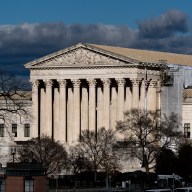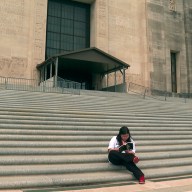By Laila Kearney
(Reuters) – A 78-year-old man convicted in the infamous 1963 Birmingham, Alabama, church bombing that killed four young black girls during a Sunday morning service was denied parole on Wednesday, a spokeswoman for the state parole board said. One-time Ku Klux Klan member Thomas Blanton was convicted in 2001 of four counts of murder and sentenced to life in prison for the racially motivated attack on the 16th Street Baptist Church.
“This is a crime that left an imprint on the entire nation,” Jefferson County District Attorney Brandon Falls said during the hearing in Montgomery, Alabama, where he urged the state board to deny Blanton’s early release. “Thomas Blanton has not served his debt to society.” Addie Mae Collins, Carol McNair, Carole Robertson and Cynthia Wesley, aged 11 to 14, were killed in the blasts that ripped through their Sunday school. The bombing injured 22 others.
Family members of the slain girls spoke at Wednesday’s hearing, pleading with the parole board to keep Blanton behind bars. The packed hearing room erupted in applause when the board announced its ruling, video posted online by a reporter with the Birmingham News showed. It was the first time Blanton, who spent more than three decades free after the crime, was eligible for early release. Under Alabama law he will next be up for parole in 2021.
In 1977, Robert Chamblis was the first to be prosecuted and convicted of murder in the bombing following then-Alabama Attorney General Bill Baxley’s request for the case to be reopened.
In 2000, the U.S. Federal Bureau of Investigation announced Blanton, Bobby Cherry and Herman Cash also had carried out the crime. Blanton and Cherry both were convicted; Cash died before being charged. The church bombing came as the U.S. south in particular was plagued by racial discrimination against blacks, and was seen as a tipping point in the fight for racial equality in the United States.
It led to the passage of the 1964 Civil Rights Act that outlawed racial segregation. The bombing was also the subject of a Spike Lee documentary entitled “4 Little Girls” released in the 1990s. (Reporting by Laila Kearney; Editing by Colleen Jenkins and Bill Rigby)


















